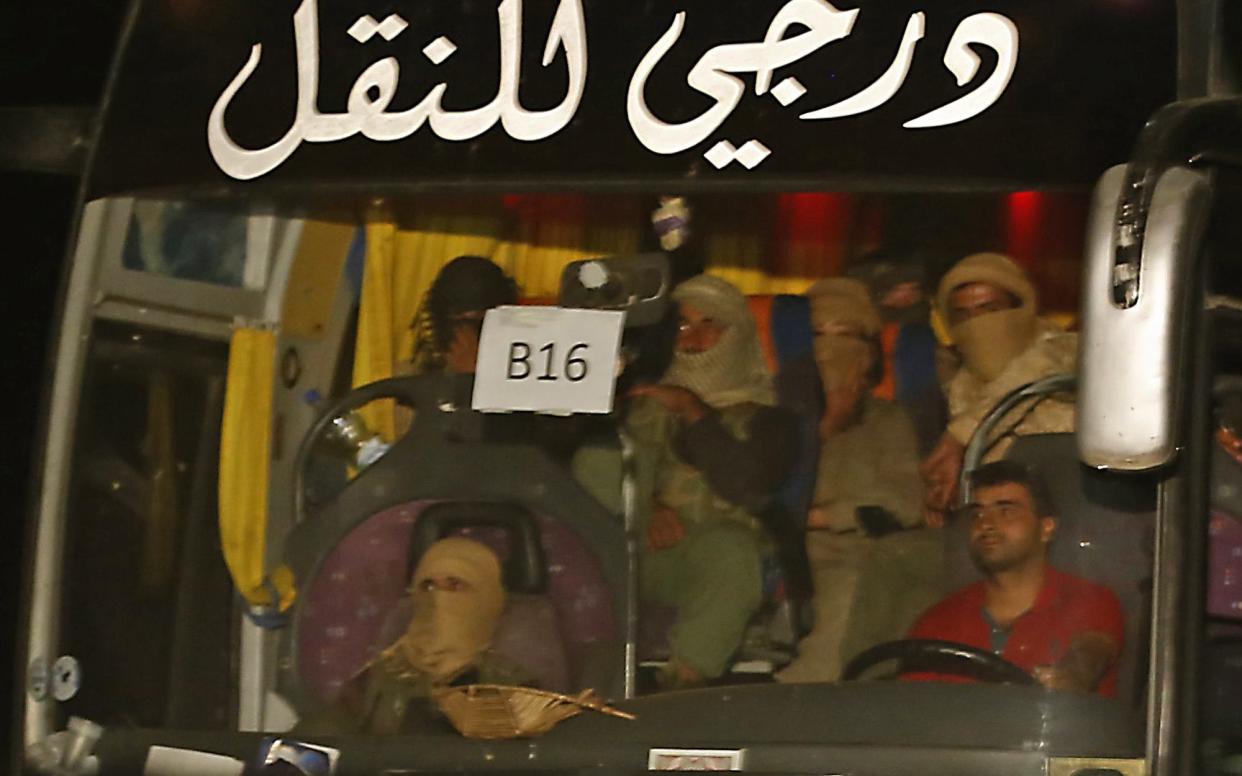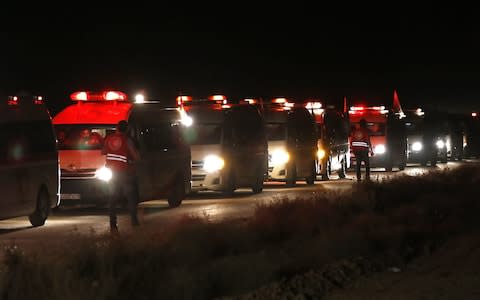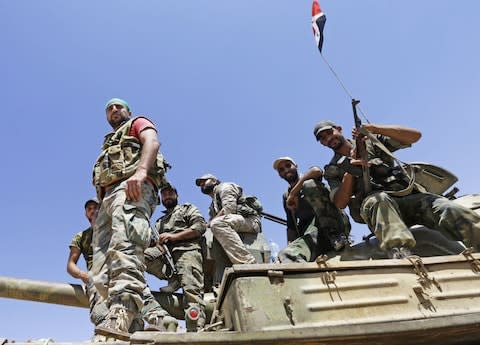US air strikes block convoy of Isil fighters being evacuated under Hizbollah deal

The US-led coalition has carried out air strikes to prevent a convoy of Islamic State fighters, who were being evacuated under a controversial truce deal, from reaching territory under its control in eastern Syria.
Some 300 Isil militants and 300 of their family members were being bussed from the border region between Lebanon and Syria to an Isil-held town near Syria's eastern frontier with Iraq, after agreeing a surrender.
The deal was struck between the militants and both the powerful Lebanese Shia militia Hizbollah and the Syrian government, invoking furious reaction from both the US and Iraq.

"To prevent the convoy from moving further east, we cratered the road and destroyed a small bridge," Col Ryan Dillon, spokesman for the US-led coalition, said.
"IS is a global threat; relocating terrorists from one place to another for someone else to deal with is not a lasting solution."
The coalition said in a statement it had not been party to the agreement and that any "counter-Isil words ring hollow" when Hizbollah and the Syrian regime "cut deals with and allow terrorists to transit territory under their control."
The jihadists and civilians, including children, left the border region in 14 buses and 11 ambulances on Monday, but on Wednesday their buses were still held up at the outskirts of Hama province, bordering Isil-held Deir Ezzor.

No explanation was offered for the delay.
The buses were escorted by the Syrian army from the Lebanese border only up to a halfway point in Homs, Hama province.
The US decided against a direct strike on the convoy due to the presence of civilians, including the bus drivers and relatives of the jihadists. Each bus was believed to contain at least one non-combatant.
Col Dillon had hinted at the coalition's intentions late Tuesday evening, saying the it would “take action where necessary” against “absolutely lucrative targets.”
Lebanese officials hailed the agreement as a major victory, one that would rid the country of extremists which have plagued the Arsal and Ras Baalbek border region for more than three years.
In a speech broadcast on Monday night, Hassan Nasrallah, Hizbollah's leader, claimed credit on the movement's behalf for negotiating the deal.
Iraq victory over Isil in Mosul, in pictures
The deal marked the first time Isil has ever publicly agreed to a truce, with the group fighting to the death for its territory in Syria and Iraq.
The Lebanese army had been battling the jihadists there for a week before agreeing a ceasefire on Sunday, aimed at retrieving the bodies of nine soldiers kidnapped by Isil in 2014.
But the controversial deal has earned the wrath of the US, which is funding the Lebanese military offensive as well as supporting the fight against Isil in both Syria and Iraq.
"Irreconcilable ISIS terrorists should be killed on the battlefield, not bused across Syria to the Iraqi border without Iraq's consent," Brett McGurk, the US presidential envoy to the anti-Isil coalition, wrote on Twitter.
"Our coalition will help ensure that these terrorists can never enter Iraq or escape from what remains of their dwindling 'caliphate'.”
Even Lebanese observers decried the evacuation of the fighters, who were transported "on air-conditioned buses" after having been suspected of killing Lebanese troops.
Haidar al-Abadi, the Iraqi prime minister, called the deal, which sees hundreds of extremists dumped on its border with Syria, as an “insult to the Iraqi people.”
“We fight the terrorists in Iraq,” he said in a speech on Tuesday, referring to its recent hard-fought victory over the group in the northern city of Mosul. “We do not send them to Syria — we kill them in Iraq.”
Mr Abadi called on the Syrian government to investigate the decision to relocate the Islamic State fighters.
“There should be full cooperation on the elimination of terrorism, not the evacuation of them from one place to the other,” he said.
FAQ | Islamic State

